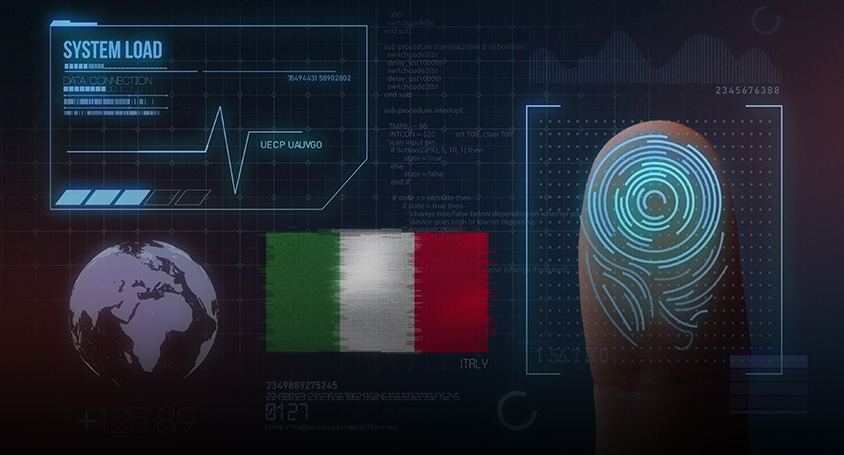Jump to other articles:
- Portugal Golden Visa Alternatives to Consider in 2026
- Why Having Multiple Passports Matters Now More Than Ever Before
- Program Bundling In Investment Migration: A Strategic Planning Approach
- Exploring Malta: A Refined Guide for Prospective Residents
- Italian Citizenship by Descent: Constitutional Challenges Introduce a Critical Window for Applicants
Italy Golden Visa & Elective Residence Visa: What to Know About 2025’s New Biometric Requirements

Italy’s 2025 immigration reforms have reshaped the landscape for high-net-worth individuals and retirees seeking long-term residence. Under Decree-Law 145/2024, biometric enrollment—specifically fingerprinting and digital photographs— are now mandatory for applicants pursuing the Italy Golden Visa or Italy Elective Residence Visa. These changes reflect a broader EU push for secure, fraud-resistant visa systems and demand more strategic planning from prospective residents.
Biometric Enrollment Now Mandatory
As of January 11, 2025, all applicants for Italy’s Type D National Visa must appear in person at their local consulate to submit biometric data. This includes:
- Fingerprinting of all ten fingers
- Digital photo capture
- Verification of identity documents and supporting materials
Applications sent by mail are no longer accepted, and biometric enrollment is now as critical as financial documentation or proof of accommodation. However, the ability to provide the above requirements at your local consulate helps to simplify the procedure as many other countries offering similar programs require in-country data collection.
Who Is Affected?
The new biometric rules apply directly to:
- Italy Golden Visa applicants: Investors seeking residence through capital investment or strategic business activity.
- Italy Elective Residence Visa applicants: Individuals relocating to Italy with proof of financial independence and long-term housing.
Unlike certain study visa applicants from countries like the U.S., Canada, Japan, and the U.K., retirees and investors are not exempt from biometric requirements.
Why It Matters for Residence Planning
These updates introduce new timing and compliance considerations:
- Longer timelines: Biometric appointments must be scheduled in advance—often 3–4 months ahead—especially during peak seasons.
- Higher rejection risk: Missing biometric enrollment can result in application denial, even if other documents are complete.
- Strategic coordination: Investors managing real estate transactions or retirement logistics must now integrate biometric appointments into their broader relocation plans.
Required Documents for Biometric Appointments
To ensure a smooth process, applicants should prepare:
- Valid passport with at least two blank pages and sufficient validity
- Proof of financial means (e.g., pension statements, investment records, property income)
- Housing documentation (rental contract or property deed)
- Health insurance covering emergency care and hospitalization in Italy and the Schengen area
Certified copies and translated civil documents (e.g., marriage or birth certificates) may also be required depending on consular jurisdiction.
EU-Wide Changes: The EES System
Italy’s biometric shift aligns with the EU’s Entry/Exit System (EES), which launched on October 12, 2025. The EES will track non-EU nationals at Schengen borders using biometric and travel document data, helping prevent overstays and identity fraud. This system reinforces the importance of accurate biometric enrollment at the visa application stage.
Additional Updates: Work Permits and Digital Nomad Visa
Italy also expanded its work-permit quotas under Decreto Flussi 2026–2028, allocating nearly 500,000 permits over three years. While not directly relevant to investors, this signals increased demand for foreign talent and may affect consular processing times.
Separately, Italy launched a Digital Nomad and Remote Worker Visa for high-skilled professionals. Though not a direct path to residence, it offers flexibility for consultants and remote employees seeking legal temporary residence in Italy.
Expert Guidance for a Seamless Process
With Italy’s immigration rules evolving rapidly, Latitude ensures you stay ahead—minimizing delays, maximizing approval chances, and turning your residence ambitions into reality. Schedule a consultation with our Latitude experts today.
 Back to News
Back to News